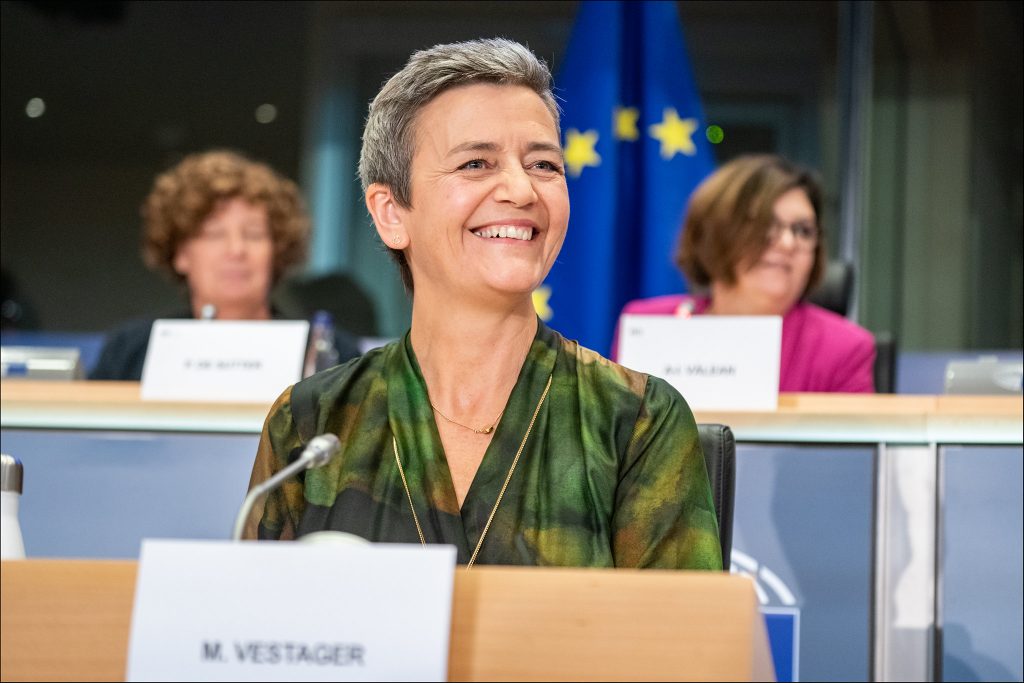
Margrethe Vestager, Executive Vice-President of the European Commission for a Europe Fit for the Digital Age, reportedly exulted over the passage of the new rules. (Source: Pietro Naj-Oleari on Flickr)
European Union Passes Two Laws Aimed at Protecting Users, Curbing Unfair Competition
You may not know the name of EU antitrust chief Margrethe Vestager, but if you use a social platform such as Google or Facebook there is a pretty good chance you will know about her soon. Especially if you are reading this in Europe.
In an article from reuters.com, comes news of the EU lawmakers and 27 nations coming to terms with an agreement about reining in social platforms and protecting users.
Last month, Vestager won backing from the 27-country bloc and lawmakers for landmark rules called the Digital Markets Act (DMA) that could force Google, Amazon, Apple, Meta, and Microsoft to change their core business practices in Europe.
Now she has helped guide The Digital Services Act or DSA into fruition.
“We have a deal on the DSA: The Digital Services Act will make sure that what is illegal offline is also seen and dealt with as illegal online – not as a slogan, as reality,” Vestager said in a tweet.
EU lawmaker Dita Charanzova, who had called for such rules eight years ago, welcomed the agreement.
“Google, Meta and other large online platforms will have to act to better protect their users. Europe has made clear that they cannot act as independent digital islands,” she said in a statement.
The team at Google was quick to respond.
In a statement, Google said: “As the law is finalized and implemented, the details will matter. We look forward to working with policymakers to get the remaining technical details right to ensure the law works for everyone.”
Under the DSA, the companies face fines of up to 6% of their global turnover for violating the rules while repeated breaches could see them banned from doing business in the EU.
The new rules ban targeted advertising aimed at children or based on sensitive data such as religion, gender, race, and political opinions. A rule also prohibits dark patterns, or tactics that mislead people into giving personal data to companies online.
The next question might be will America follow suit? The U.S is working on its own set of guidelines or restrictions. While there is currently no federal regulation of AI in the U.S., regulators have sent a clear message that AI regulation is on the horizon.
But it seems unlikely it would be as strong as the EU’s DSA. And the 27 nation block is willing to start enforcing the DSA in 2024.
read more at reuters.com







Leave A Comment